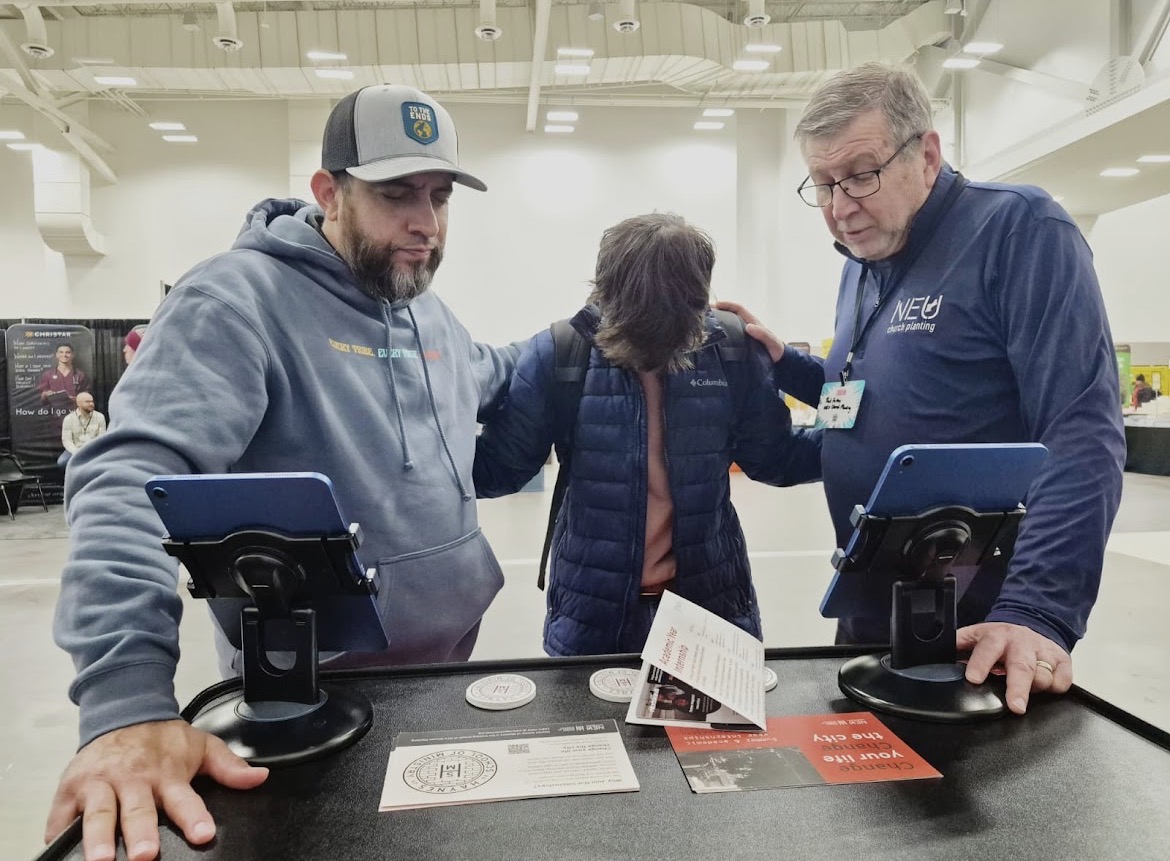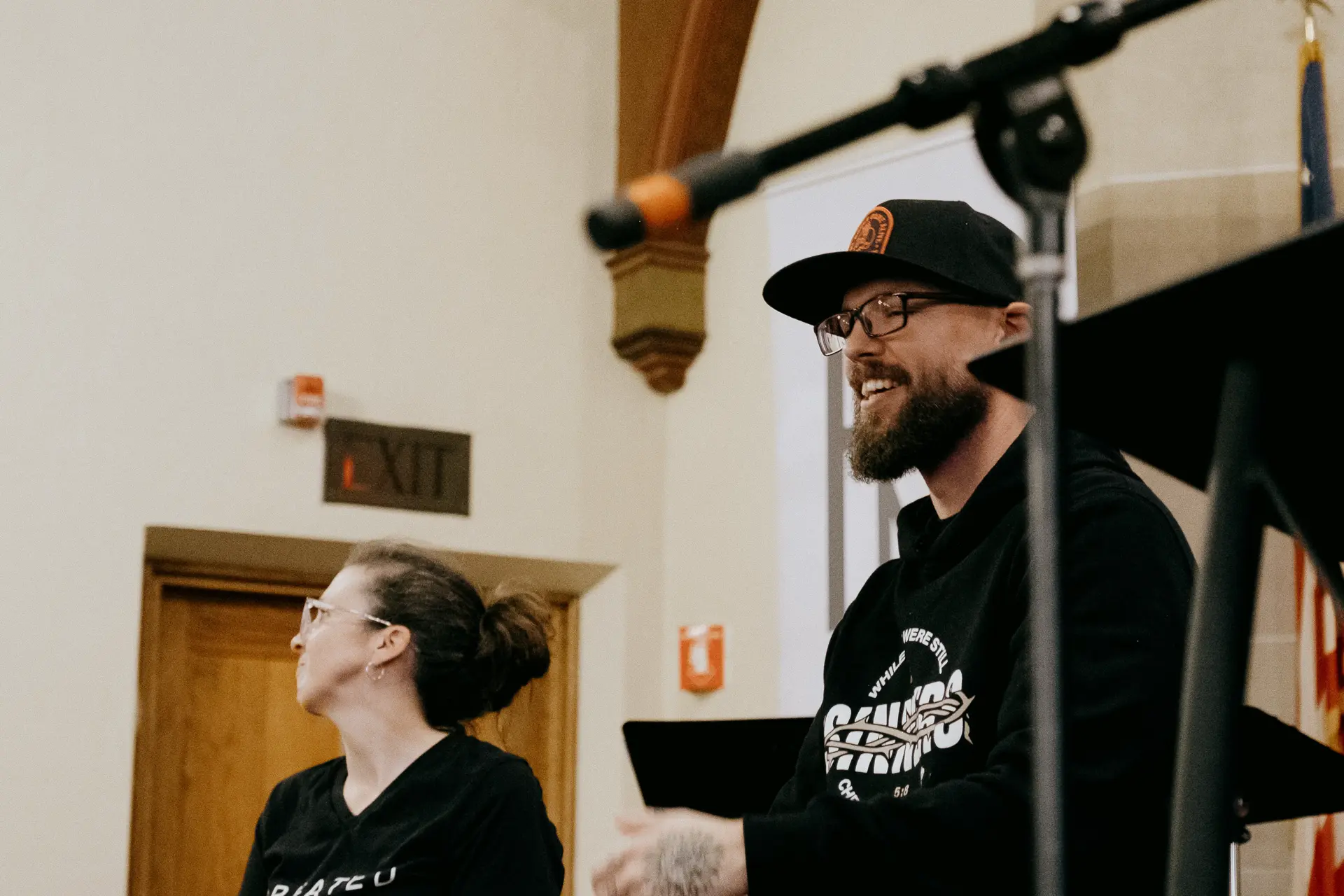The resurrection, the renewal of the body in the return of Christ, offers a uniquely better word of hope to survivors of trauma than any vague message of “going to a better place after death” that our culture offers.
Recent research has shown that trauma of all kinds creates physiological changes in the human body. Dr. Bassel A. van der Kolk, in The Body Keeps the Score: Brain, Mind, and Body in the Healing of Trauma, presents his findings from decades of research with his patients. Commonly, traumatic events are believed to be primarily mental health problems to be solved. It is not that they aren’t physical, but they are primarily wrapped up in our internal life — how we think about things. Thus, treatments for traumatic events are often perceived as simply requiring talk-therapy solutions. These solutions are required, but we must account for other aspects of how trauma lives in the body: the consequences of life’s events changing the physiology of the body itself, not just our intellectual perceptions of the world around us.
Dr. Bassel A. van der Kolk illustrates this experience for us:
“Traumatized people chronically feel unsafe inside their bodies: The past is alive in the form of gnawing interior discomfort. Their bodies are constantly bombarded by visceral warning signs, and, in an attempt to control these processes, they often become expert at ignoring their gut feelings and in numbing awareness of what is played out inside. They learn to hide from their selves.”
Van der Kolk, Bessel A. 2015. The Body Keeps the Score: Mind, Brain and Body in the Transformation of Trauma. Harlow, England: Penguin Books. Page 97.
We do not need to do a full treatment of his work here to observe a few things: For survivors of trauma, their very humanity has been warped in a way that merely “thinking right thoughts” will not change. Their humanity has been assaulted. They cannot help much of their experience of “being human” and continue to live a tortured existence in their humanity.
If we offer any sense of “going to a better place” in death as the ultimate resolution to their human experience, we do a disservice to the glory of their humanity. To be human is a complex experience of body and soul. Where are the lines for both? I’m hard-pressed to offer a solution here. But for people who have experienced trauma, their humanity has been violated in some deep way that results in a soul-level torture to find relief. A future beyond death that is merely some type of ghostly experience without a body actually insults the horror of their traumatic experience(s). If humanity’s resolution in life after death is to merely lack a body, what value is there to the body that has been the source of such great trauma and assault to their soul?
It is here that the good news of Christ’s “first fruits” resurrection meets the confusion of their trauma as a better word. This Jesus, who has been “made perfect through suffering” (Hebrews 2:10, 7:28), was raised in a glorious body — a body that endured significant trauma upon the cross — to a wholeness imbued with the Spirit, and is now united to us in such a way that our humanity will also “put on immortality” like he has (1 Cor. 15:53). He will appear, and “the Lord Jesus Christ… will transform our lowly body to be like his glorious body, by the power that enables him even to subject all things to himself” (Phil. 3:20–21). We have a scarred, glorified Savior (Luke 24:39).
Certainly, there are many aspects of the risen and reigning Christ that offer specific comfort and hope for the traumatized (his priestly care for them, his justice, etc.). But to the point at hand, let us draw out a few specific observations based solely on the objective fact of his resurrection and thereby, the resurrection unto glory for the believer.
Jesus Christ experienced the fullness of trauma — the soul-crushing, physiologically changing effects of trauma. Certainly, his Passion, from Gethsemane to his dying breath, can be so identified. These experiences were not immaterial to glorifying God. So critical were they to showing the value of humanity and God’s glory that he is permanently scarred in his glorification. This is to show that those things that are the deepest wounds to our humanity are finally, fully filled by the Spirit’s glorifying work in our humanity that they remain as markers of God’s glory and presence with us. They are not shameful marks to be erased. That which shows the fulness of human suffering evidences the power of Christ’s loving descent into our experience, followed by his redemption of those experiences.
Additionally, some of the most painful aspects of traumatic experiences are the “collateral damage” of life that seems to have been stolen away. Whether it’s the inability to have intimate relationships without some type of “triggering” moment or some permanent physical effect, trauma can often feel like some aspect of our humanity, of our ability to easily engage the world, has been stolen. The traumatized thus feel like they were not merely victims of uncontrollable events, but re-traumatized by being excluded from some type of human experience. To this, the glorified, resurrected body of Christ evidences this simple reality: Your humanity will be so renewed and restored in such a way that there is only more joy to be experienced. To the traumatized especially, from those who weep uncontrollably at night to those who feel irrevocably numb, he says promises to touch their renewed humanity with pure hands, to “wipe away every tear from their eyes” so that “death shall be no more” (Revelation 21:4), which is to say, every mark or effect of death upon the whole of our humanity — all of that which feels most uncontrollable in our lives, will be done away with.
Thus, we see the frailty and insult of any view of the afterlife that does not center on the resurrection of the body. Survivors of trauma know this intuitively. Their humanity has been violated in some deep way, and nothing less than the fully renewed, glorified humanity offered them in Christ will heal their wounds.
Jacob Young
Jacob Young is the lead pastor at King's Cross in Manchester, NH. Their church meets at the Hope for New Hampshire Recovery Center on Sundays. Having grown up with his dad in the military, Jacob is “generally American” but feels most at home in Manchester, New Hampshire. He and Michelle have been married since 2007 and have four boys (please pray for them). Jacob is currently finishing his Masters of Divinity at Knox Theological Seminary and graduated from Auburn University with a degree in Philosophy and English in 2007. His pastoral ministry is primarily focused on helping people recover their humanity by loving and following Jesus. His primary influences are Herman Bavinck, Dietrich Bonhoeffer, Lesslie Newbigin, Eugene Peterson, and Tim Keller. Jacob works out in his garage on a regular basis where he can be found picking things up and putting them down. While many others enjoy running, he prefers walking. He also really likes cigars, Keanu Reeves, and Taylor Swift; but he hates cats.
This article originally appeared on Jacob Young's blog under the same title: The Hope of Bodily Resurrection for Survivors of Trauma.





